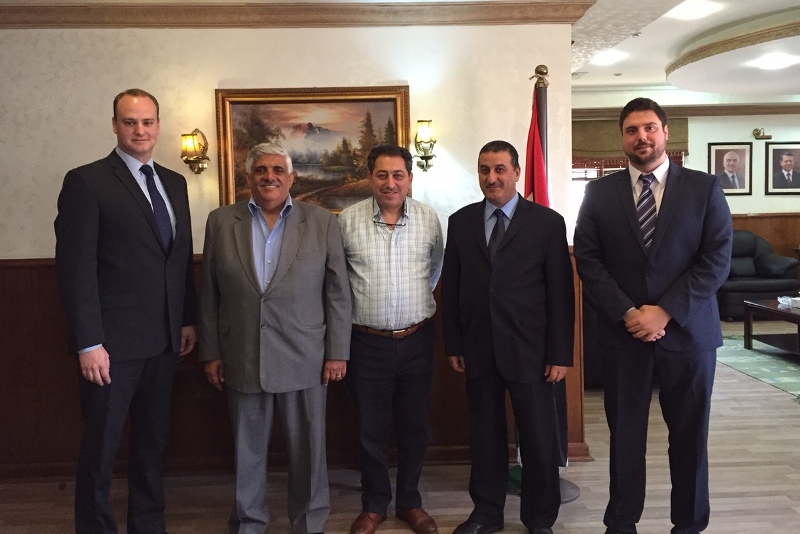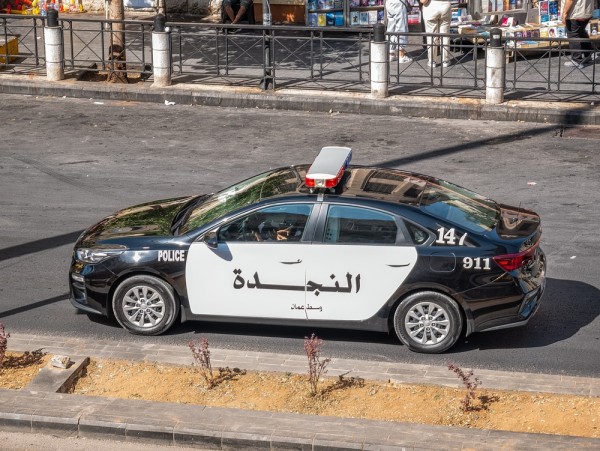The International Press Institute (IPI) today welcomed remarks by the head of Jordan’s Media Commission and members of Parliament that they were open to changing a licensing scheme for news websites, but cautioned that the statements – which echoed similar, past comments by the government – need to be followed by concrete action.
The Media Commission head, Dr. Amjad Al-Kadi told delegates from IPI and the Amman-based Center for Defending Freedom of Journalists (CDFJ) that he hoped a public discussion on swapping the Press and Publications Law’s licensing requirement for a registration system would be held in October or November, around the time that Parliament is expected to return to session.
Parliamentarians Dr. Zakaria Al-Sheikh, the head of Parliament’s National Guidance Committee, and Jamil Nimri, the Committee’s media member, similarly voiced support for such a change, as did opposition MP Dr. Rula Al-Hroob.
The IPI delegation, which included IPI Executive Board Member and Palestinian journalist Daoud Kuttab – director general of the Community Media Network in Jordan and founder of AmmanNet – and IPI Digital Media Coordinator Javier Luque, was in Amman this week as part of a mission to examine press freedom in Jordan, particularly the threats that online journalists increasingly face. The delegates also met with journalists, bloggers, digital media experts and activists.
The licensing scheme was put in place under amendments to Jordan’s Press and Publications Law that also required news websites be headed by a journalist who has been a member of the Jordan Press Association (JPA), the country’s only professional press syndicate, for at least four years.
The amendments were hastily approved in 2012 amid a campaign to place limits on online pornography and allegations of economic blackmail by unprofessional news sites. On June 1, 2013, weeks after IPI held its annual World Congress in Amman, Jordan’s Telecommunications and Regulatory Commission blocked more than 200 websites for failing to comply with the law.
IPI Director of Advocacy and Communications Steven M. Ellis said today that delegates were pleased by the statements and by Dr. Al-Kadi’s invitation to join in a public discussion dropping the licensing provision and moving to a system that would require registration so that those who felt victimised by improper conduct could take steps to remedy that under existing civil law.
But he noted that the comments were similar to pledges government officials made to previous IPI delegations in the last two years and to U.N. Human Rights Council’s Universal Periodic Review when it examined Jordan’s human rights situation in late 2013.
“Licensing regimes such as these run afoul of Jordan’s commitment to respect free expression under international law, including Art. 19 of the International Covenant on Civil and Political Rights,” Ellis said. “And the stated aim for this scheme could just as well be achieved by ensuring that news websites operate openly, providing basic information such as their address and who is responsible for content. We urge Jordan’s government to follow through on past promises and take this basic step to bring this aspect of law back into line with their international commitments.”
Ellis and the delegates similarly welcomed the officials’ indications that they would also be open to legal changes to allow the formation of other associations representing journalists, such as those operating in the broadcast and online sector who currently cannot obtain JPA membership.
However, the delegates cautioned that Jordan faced a number of other challenges to media freedom, most severely amendments made last year to the country’s Anti-Terrorism Law.
“Many of these amendments, particularly a provision that allows charges against anyone who threatens Jordan’s relationship with a neighbouring country, are extremely vague and represent an open invitation for abuse,” Ellis said. “We similarly urge Jordan’s government and its legislators to ensure that any laws seeking to protect national security or address ‘terrorism’ contain clear and narrow definitions in order to ensure that they cannot be used as a pretext to prevent debate on matters that are of public interest.”
These threats come amid a backdrop of increasing self-censorship in Jordan, the CDFJ said early this week in a report. The group said that 95 percent of journalists said they censored themselves in 2014, up from previous years, and that 93 percent of journalists said they avoided reporting on topics related to the military.



